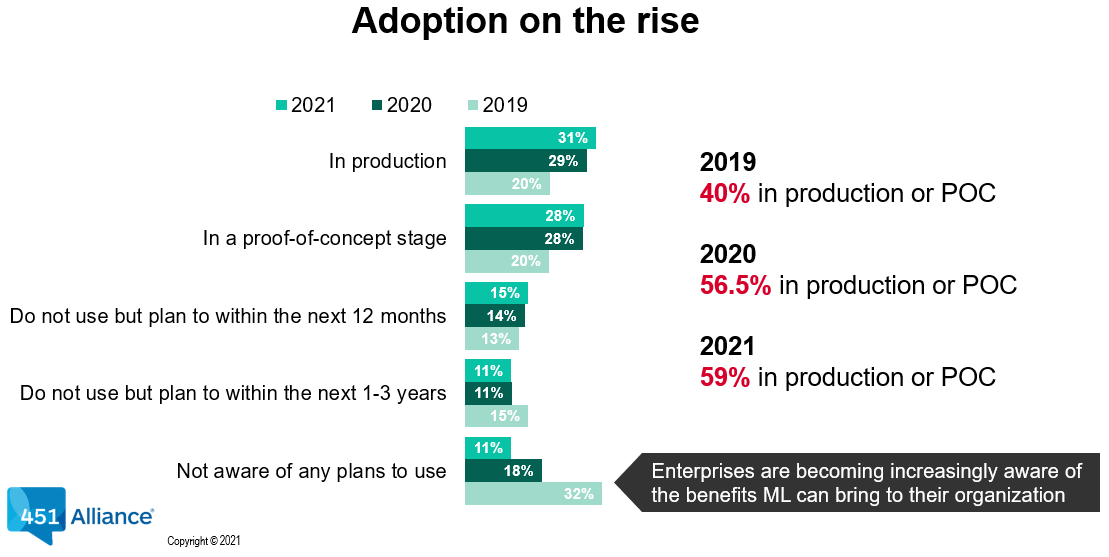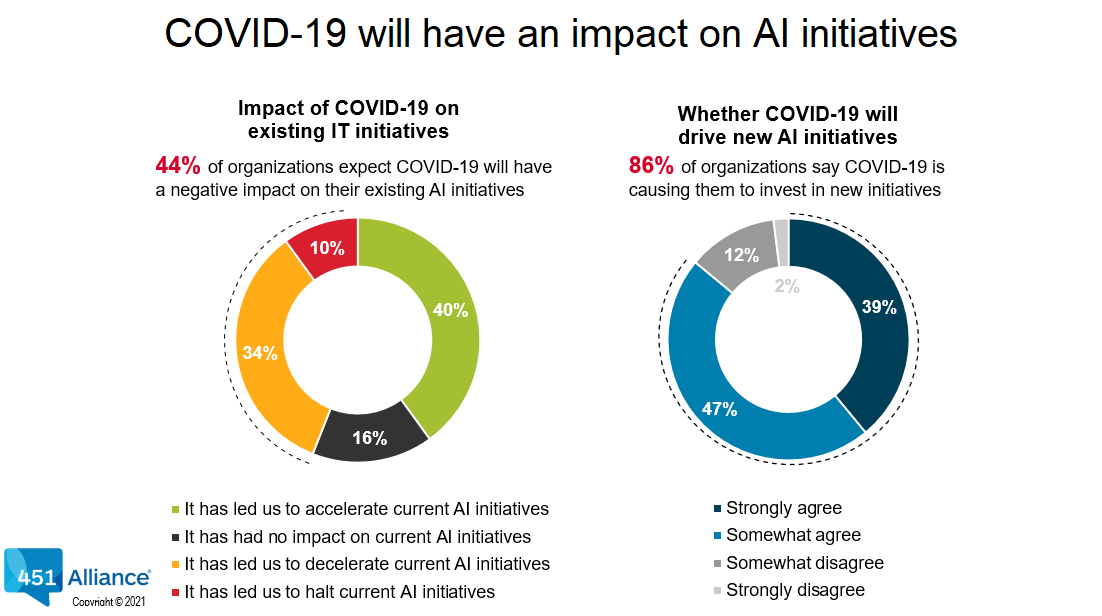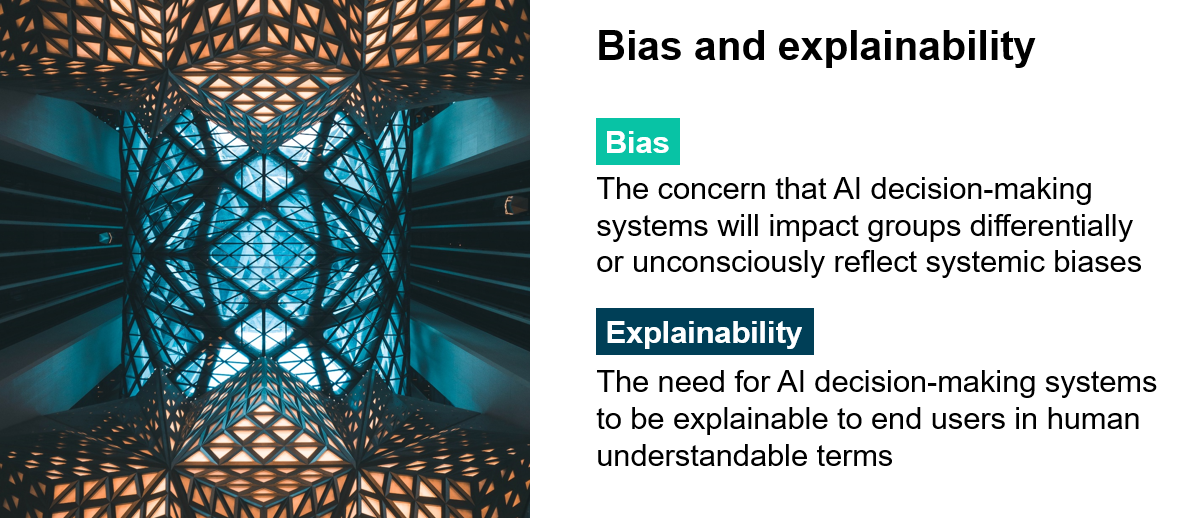
Though the term “artificial intelligence” was first coined over 65 years ago, AI is still seen as a concept at technology’s bleeding edge. Its continued adoption across a wide range of vertical sectors demonstrates the buzz-worthiness of modern AI as a game-changing technological application.
“The awareness of this technology [has become] heightened over the years,” said Nick Patience, Research Director for AI applications and platforms at 451 Research, in a recent webinar on the state of enterprise AI in 2021. “The use cases…and the challenges and opportunities around [AI] are becoming clearer.”

Pandemic presents AI opportunities
According to a study of 451 Alliance members, AI is seen as an increasingly indispensable tool across most industries. Curiously, survey data revealed that while AI projects under development may have been somewhat derailed by the coronavirus pandemic, new AI applications are now viewed as even more essential than before.
Patience shared that “44% of survey respondents expect the pandemic to have a negative impact on their existing AI initiatives. [However, when asked] whether COVID…will cause organizations to invest in new initiatives…86% of you say it will. This implies the priorities are shifting.”

Bias abounds, making “explainability” critical
According to Patience, “we all have our biases, and we inject them into our everyday work, as much as we try not to.” These biases can result in faulty data, flawed algorithms or programming, and other human-based oversights that typically lead to compromised AI-governed outputs. Making the AI operation “explainable” is paramount to creating trust in and acceptance of the results.

“Explainability is [about whether an AI system] is making a decision in terms a human can understand – and I should say, a human [who] is not a data scientist,” Patience said. “The way I like to think about this is, if you’re in the finance industry, can you…explain to your regulator why this is making the decision it is. How far can you unroll it and unpack it and explain it to them?”
When will the machines take over?
Perhaps the leading source of apprehension about AI is its ability to supplant humans in many aspects of daily life activity and decision-making. To assess the level of anxiety around this oft-reported concern among webinar attendees, Patience conducted a live poll.
In it, he asked the audience to indicate when they believed the concept of “artificial general intelligence” – the ability to capture and program into software the highly adaptive and generalized intelligence of humans – would become a mainstream phenomenon. Fifteen percent of poll participants said it would come to pass within five years, and another 38% believed the time frame to be between five and 15 years.

Patience demurred. “When you hear about an advancement of AI in the news,” he observed, “it’s very tempting for mainstream news to…say, ‘are we all going to be governed by robots, or are robots going to be our bosses?’ There’s a long, long way from…a natural language processing algorithm, to that.”
Of course, only time will tell what the future of AI will hold – and when that “future” will arrive. As Arnold Schwarzenegger famously declared in his signature role as the Terminator, a legendary celluloid example of AI, “I’ll be back.” The question is when, and at what rate of “improvement”?
This webinar was part of a monthly presentation of research results offered as a benefit to members of the 451 Alliance. The webinar and accompanying slide deck are available exclusively (and at no cost) to members on the 451 Alliance member portal, along with a complete library of on-demand research products. We thank our members for sharing their knowledge with peers through their participation in our quantitative surveys and qualitative interviews.

